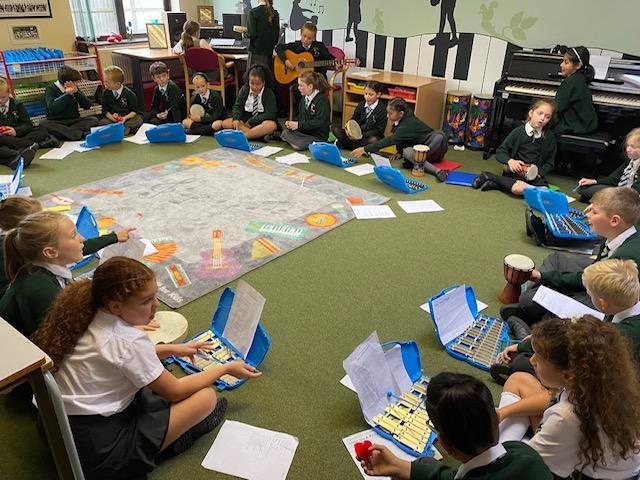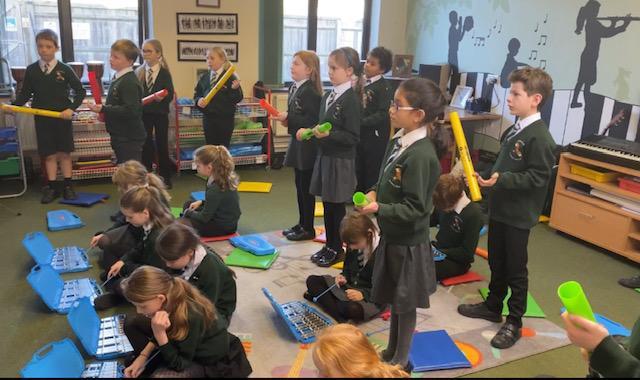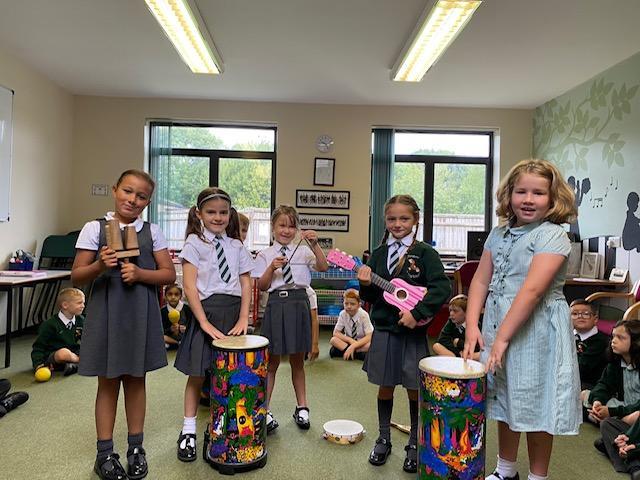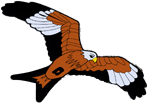Music

Intent
The intention of the music curriculum at Stokenchurch Primary School is first and foremost to help children to feel that they are musical, and to develop a life-long love of music. We focus on developing the skills, knowledge and understanding that children need in order to become confident performers, composers and listeners. Our curriculum introduces children to music from all around the world and across generations, teaching children to respect and appreciate the music of all traditions and communities.
Children will develop the musical skills of singing, playing tuned and untuned instruments, improvising and composing music, and listening and responding to music. They will develop an understanding of the history and cultural context of the music that they listen to and learn how music can be written down. Through music, our curriculum helps children develop transferable skills such as team-working, leadership, creative thinking, problem-solving, decision-making and presentation and performing skills. These skills are vital to children's development as learners and have a wider application in their general lives outside and beyond school.
Implementation
At Stokenchurch Primary School we take a holistic approach to music in which the individual strands below are woven together to create engaging and enriching learning experiences:
- Performing
- Listening
- Composing
- History of music
- The inter-related dimensions of music
At Stokenchurch Primary we use the Kapow music scheme and each unit combines these strands within a cross-curricular topic designed to capture pupils' imagination and encourage them to explore music enthusiastically. Children will be taught how to sing fluently and expressively, and play tuned and untuned instruments accurately and with control. They will learn to recognise the name, the interrelated dimensions of music-pitch, duration, tempo, timbre, structure, texture and dynamics- and use these expressively in their own improvisations and compositions.
Impact
The impact of our music curriculum can be constantly monitored through both formative and summative assessment opportunities. Knowledge organisers for each unit support pupils by providing a highly visual record of the key learning from the unit, encouraging recall of the practical skills, key knowledge and vocabulary.
Pupils should leave primary school equipped with a range of skills to enable them to succeed in their secondary education and to be able to enjoy and appreciate music throughout their lives.
The expected impact is that children will:
- Be confident performers, composers and listeners and will be able to express themselves musically at and beyond school.
- Show an appreciation and respect for a wide range of musical styles from around the world and will understand how music is influenced by the wider cultural, social and historical contexts in which it is developed.
- Understand the ways in which music can be written down to support performing and composing activities.
- Demonstrate and articulate an enthusiasm for music and be able to identify their own personal musical preferences.
- Meet the end of key stage expectations outlined in the National Curriculum for music.


